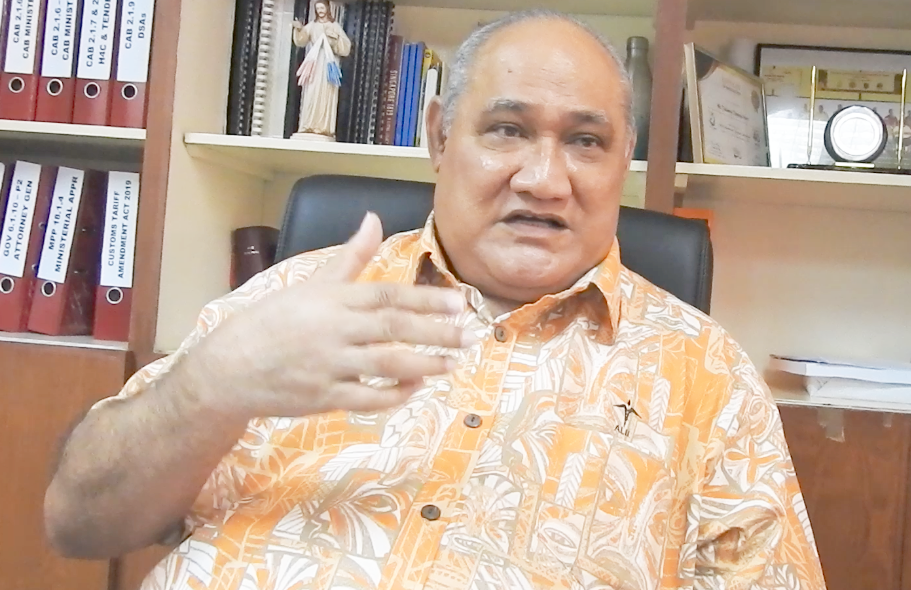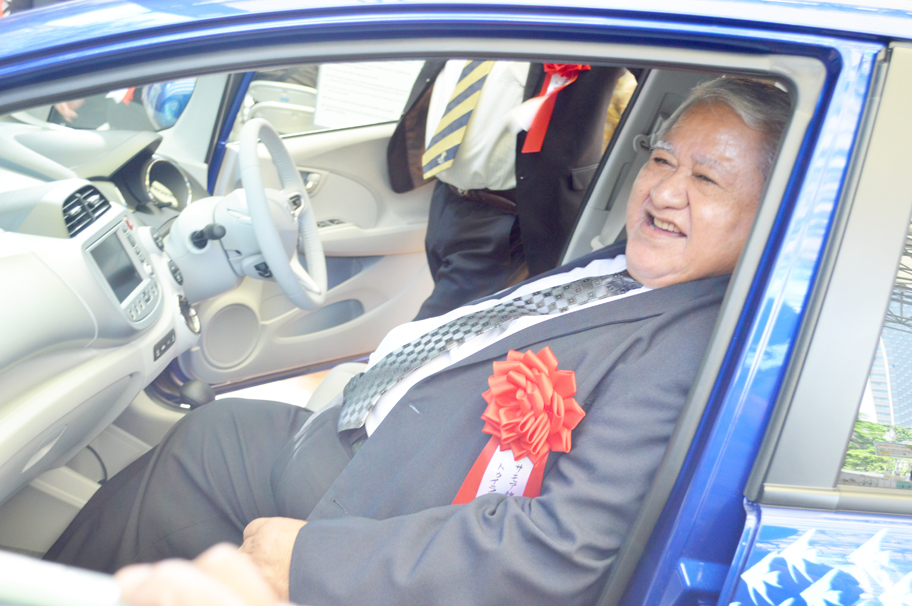
By Staff Writer
Electrical cars are already in Samoa and so too are motorcycles, but for now you can count all of them with your fingers.
If all goes according to plan, there should be a noticeable change two years from now in 2022.
All depends on whether new legislation to remove the excise tax on electrical vehicles comes into effect as expected when Parliament is called to session next October.
The Minister of Revenue, Tialavea John Hunt, believes it will be more noticeable when more starts coming in by the end of next year 2021.
“Public interest will take a while to pickup but it’s also good to move carefully to see how it shows up in the long run,” Tialavea told Newsline Samoa.
There are roughly 6 electrical and hybrid cars in Samoa with two motorcycles in use by the Ministry of Police at the moment.

The first electrical car in Samoa was brought in by the Ministry of Natural Resources and Environment, several years ago.
Tialavea revealed that the winning argument in the 5% tax removal is the greater good electrical cars offer to reduce the damaging effects of climate change with a cleaner environment.
“The loss of revenue from the removal of the tax was weighed up carefully against the benefits and a cleaner and safer environment from climate change holds the greater good for Samoa.
“VAGST will still be in effective as well as 5% excise tax on spare parts for these cars.”
Importing electrical cars that can range from sedans, pickup trucks to buses have issues for the general public to be familiar with.
A brand new vehicle is around the NZD$100 – $200 thousand dollars price range but there are used electrical cars that will go for NZD$12-$13 thousand which is much more when converted to the Samoan currency.
Full electrical cars are different from the hybrid model where the engine is powered by electricity up to 50km but switches to petrol when it moves further.
The general belief is that electrical powered vehicles are more expensive than petrol and diesel engines but in the long run it saves on the petrol costs.

The Revenue Minister took into account also the other factors that have to be looked at carefully within the next two years before the 5% tax exemption is up for review.
“ This is a trial period where we look at its impact on the infrastructure with things like the set up of battery-recharging stations as we have now with petrol stations.
“The servicing of these vehicles is an important factor as well, it is not worth investing in a business unless there are at least 200 cars around not just 6 in the whole country.”
Tialavea also worried about safety issues for road pedestrians especially children.
“You don’t hear any engine sound of an electrical car and that will put a lot of weight on the drivers to always be on the alert when children are around the round.
“The children are prone to an accident not hearing the noiseless motions of the car on the road.”
The Minister believes car dealers who import these electrical vehicles should also be able to provide repair and maintenance services.

For now the importing of used electrical vehicles is open unlike petrol cars of 12 years.
“These electrical cars are ideal for family use inside the Apia urban areas.”
Tialavea is confident that Government will still earn from these cars with savings on foreign exchange from the drop in demand for petrol.
The Electric Power Corporation, EPC, will also earn from the sale of electricity for recharging.
